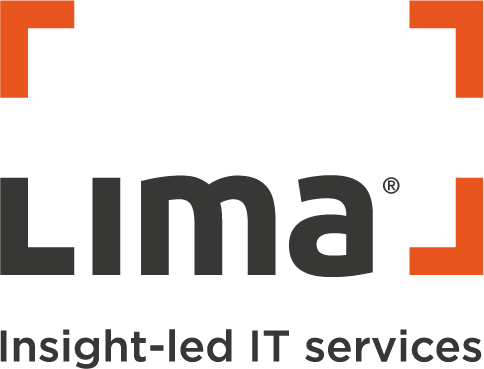
Ensuring compliance for your business
08.03.24
Brabners Invests in Future-Ready Legal Operations with LIMA
29.04.24
How it may affect you and how to address the challenges it presents
The Forbes IT Skills Gap Report 2023 shines a spotlight on tech skills in the UK workforce. It reveals an urgent and growing need among businesses for tech expertise, but shows that for a variety of reasons there is currently a shortfall in meeting it. A notable 35% of businesses say competition in the jobs market is a major challenge. The scarcity of skilled candidates and the number of opportunities in these sectors make recruitment and retention of staff a demanding task.
(Forbes IT Skills Gap Report, 2023).
Tech staff are in high demand, with 93% of UK businesses saying there is an IT skills gap. Recruitment is becoming more and more difficult, and high paying sectors are pulling skilled staff away from other businesses. In this blog, we look at how this skills gap may affect you, how can you bridge it – and how you can ensure that you’re getting the best security for, and business value from, your IT systems, team and services.
The background
The Forbes report highlights some of the key aspects of the skills gap challenge: why it’s occurring, and which specific areas it impacts the most:
- Many aspects of technology, from artificial intelligence (AI) to data analytics and cloud computing, are rapidly evolving, contributing to the challenge.
- While AI is by far the most in-demand skill for businesses, it is closely followed by two other valuable technology skills: IT support and troubleshooting and cyber security.
- The growing threat of cybercrime and the constant need for IT support means that professionals equipped with these skills are likely to find themselves in high demand among employers.
These findings reflect a growing concern for many businesses and organisations. Holding on to your IT staff, let alone recruiting the right new people, is a major priority. And that means there are several additional factors to consider:
- What are the key skills of your current team – and are they fully optimising those skills for best value to your business? What do you want them to be focussing on?
- What skills and solutions is your business lacking – and how can you fill that gap?
- Do you have the necessary skills and capacity to address the growing problem of cybercrime vulnerability detection and remediation – and to ensure that your IT systems are not just robust and secure, but also fully compliant with regulatory requirements?
- Is filling the skills gap best done in-house, do you outsource specialist skills – or operate on a hybrid model?
As the Forbes report reminds us, recruiting the right IT people is a costly exercise in today’s environment. Time-consuming too. So it’s essential that you optimise the value of your IT team, and enable them to focus on your main priorities.
For many organisations, their key targets are operational: to ensure that their IT systems deliver what the business wants and needs, to make the most of their digital investment, and also – where appropriate – to embrace emerging technologies like AI and Cloud, in order to enhance those systems and grow the business. IT staff are likely to have been recruited with general and specific skill sets to fulfil these functions, as opposed to being specialists in, for instance, IT security or troubleshooting.
Let’s now look at the implications in two areas Forbes has identified as being substantial – indeed, business-critical challenges….
1. Cyber-security and compliance
When it comes to cyber security and the growing threat of cyber-crime and attacks, a range of specialist skills, knowledge and capabilities are required which most in-house IT teams are highly unlikely to have. Here’s a telling truth to underline the importance of that:
In 2023, 90% of successful cyberattacks involved the exploitation of unpatched software vulnerabilities.
Systems need to be constantly monitored for vulnerabilities which leave them open to attack. Yes, there are software packages and apps to do that – but those vulnerabilities also need to be resolved. Failure to address vulnerabilities can have a vastly damaging impact, financially and operationally: cybercrime costs UK businesses £billions as well as causing organisational and reputational damage. Maintaining robust cyber security is essential for IT compliance, too. Without which, the whole business, and its insurance, is compromised.
It’s a minefield, which is why IT security compliance professionals are so much in demand. So what do you do? Expensively recruit for your own in-house team or look for cost-effective external solutions?
Vulnerability Detection & Remediation
VDR, exclusively from LIMA, answers that question in one. It doesn’t just detect vulnerabilities across your entire IT environment, it remediates them, swiftly and accurately. And it does so constantly, addressing risks and evolving dangers as they arise, across 500+ technologies.
VDR is backed by 25 years of specialist experience and expertise, and keeps your software, hardware, third parties, networks and apps secure – and compliant. It comes with an outstanding SLA ensuring all compliance requirements are met, for cyber-insurance, CE+, ISO 25001 and similar frameworks. In fact, it easily outperforms CE+, with KPIs of 3 days for Windows – compared to the required 3 – and 7 days for infrastructure, compared to 14.
IT Security – Compliance as a Service
VDR takes all the pressure of IT security compliance off ‘regular’ compliance staff who are not security trained, qualified or focused. It’s an ‘out of the box’ solution which bridges that significant skills gap efficiently and cost-effectively, as it means you don’t need to recruit for a specialist team or system – or have any concerns about retaining them. IT security and guaranteed compliance are taken care of, with simple, agreed and transparent costing which enables you to budget with confidence.
Is your IT system right for you?
Before we move on to the second of the challenges identified by Forbes, let’s consider a fundamental digital skill. Choosing and implementing the right technology in the first place. Is yours going to deliver the best results for you, now and into the future?
At LIMA, the pre-sales team work with customers to understand their business challenges, then translate that into which technologies will solve them and establish what outcome the use of those technologies will drive.
It’s an insight-driven part of the LIMA process, not a separate or charged-for system design service. LIMA’s expertise and uniquely personalised approach – the human face of digital skills, if you like – can make all the difference, delivering advice and solutions before your investment in IT is made. Given the cost of systems, and the potential wastage caused by over specification, under specification or even incorrect specification, that’s crucial both to the success of your IT systems, and the future of your business – so it could well be worth having a dialogue with LIMA.
2. IT support and troubleshooting
Whatever systems you put in place, or already have, support and troubleshooting are essential day to day IT functions too, of course, and you can expect a certain level of capability in these areas from a typical skill set. However, you may also prefer to entrust the management of your IT infrastructure to a proven provider like LIMA, with a choice of options to suit your needs.
End-user Support
LIMA’s end-user support function provides streamlined IT experiences for your business and end users, taking care of your whole IT infrastructure end to end: telephony, networking, connectivity and foundation security, with built-in governance and standardisation. It relieves the pressure – and costs – of running your own first-line support, enables you to budget predictably and frees your IT talent up for business-critical functions.
ProActive Support
With ProActive support, the LIMA service delivery Team has complete, round-the-clock visibility of your infrastructure and carries out ongoing maintenance to boost availability and performance and reduce risk. It’s flexible, too: you can easily change the assets LIMA manage, while establishing a tailored schedule of alerts, thresholds and notifications. And costs are clear and transparent, with an agreed annual fee.
Active Support
if you already have an in-house team, you can call on LIMA’s expert Active Support when needed – 24/7 – to enable your people to focus on other tasks. This round-the-clock support covers rapid incident management, maintaining a seamless service to your end users, along with third-party vendor management for any assets LIMA manage on your behalf. Again, for an agreed fee. It’s a hybrid solution where your team are supported in key areas.
Conclusions
The digital skills gap represents a substantial ongoing challenge for UK businesses and organisations. But by turning to smart solutions and support from a specialist provider like LIMA, you can effectively and cost-efficiently address two key areas identified by the Forbes report, cyber security and IT support and troubleshooting – whilst also enabling your IT team to use their own digital skills where they add the most value.
Our digital knowledge and insight-led understanding can help you optimise your IT investment in every way…and as for the AI and Cloud expertise Forbes identify as the skills most in demand, a conversation with LIMA could be the best starting point too….
To find out more, and to discuss how LIMA can help you address the challenges of the digital skills gap, 0345 3451 110 or email enquiries@lima.co.uk.


